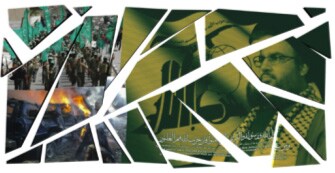
By Daniel Lav
The ideology of "resistance" - muqawama - has been a central feature of Arab political thought in the modern age. Recently, though, the concept of resistance - and in particular the way it has been deployed in the last few years - has come under attack from Arab liberals. This essay will present the broad outlines of this critique and the circumstances of its emergence.
Arab liberalism was a force of only marginal importance in the Middle East in the second half of the 20th century, and has only recently regained prominence. A number of factors contributed to this liberal resurgence. First, the decline of the global Left in general and the Arab Left in particular led a number of former Arab Marxists to embrace liberal ideas. Among these are such figures as Hazem Saghieh, Lebanese political editor at Al-Hayat; Tunisian intellectual Lafif Lakhdar; and Syrian intellectual Georges Tarabishi. This phenomenon mirrors (though belatedly) the movement of prominent intellectuals in the West, such as the French historian Francois Furet, from the Marxist camp to liberalism. Yet more significant than the intellectual evolution of specific individuals has been the fact that the eclipse of Marxism in Russia and Eastern Europe and the democratization of much of the Third World has led to a general convergence on the liberal model of progress. Thus, Arab thinkers concerned with modernizing their societies no longer have two competing models of modernity to choose from. Read more ...
The ideology of "resistance" - muqawama - has been a central feature of Arab political thought in the modern age. Recently, though, the concept of resistance - and in particular the way it has been deployed in the last few years - has come under attack from Arab liberals. This essay will present the broad outlines of this critique and the circumstances of its emergence.
Arab liberalism was a force of only marginal importance in the Middle East in the second half of the 20th century, and has only recently regained prominence. A number of factors contributed to this liberal resurgence. First, the decline of the global Left in general and the Arab Left in particular led a number of former Arab Marxists to embrace liberal ideas. Among these are such figures as Hazem Saghieh, Lebanese political editor at Al-Hayat; Tunisian intellectual Lafif Lakhdar; and Syrian intellectual Georges Tarabishi. This phenomenon mirrors (though belatedly) the movement of prominent intellectuals in the West, such as the French historian Francois Furet, from the Marxist camp to liberalism. Yet more significant than the intellectual evolution of specific individuals has been the fact that the eclipse of Marxism in Russia and Eastern Europe and the democratization of much of the Third World has led to a general convergence on the liberal model of progress. Thus, Arab thinkers concerned with modernizing their societies no longer have two competing models of modernity to choose from. Read more ...
Source: MEMRI




















